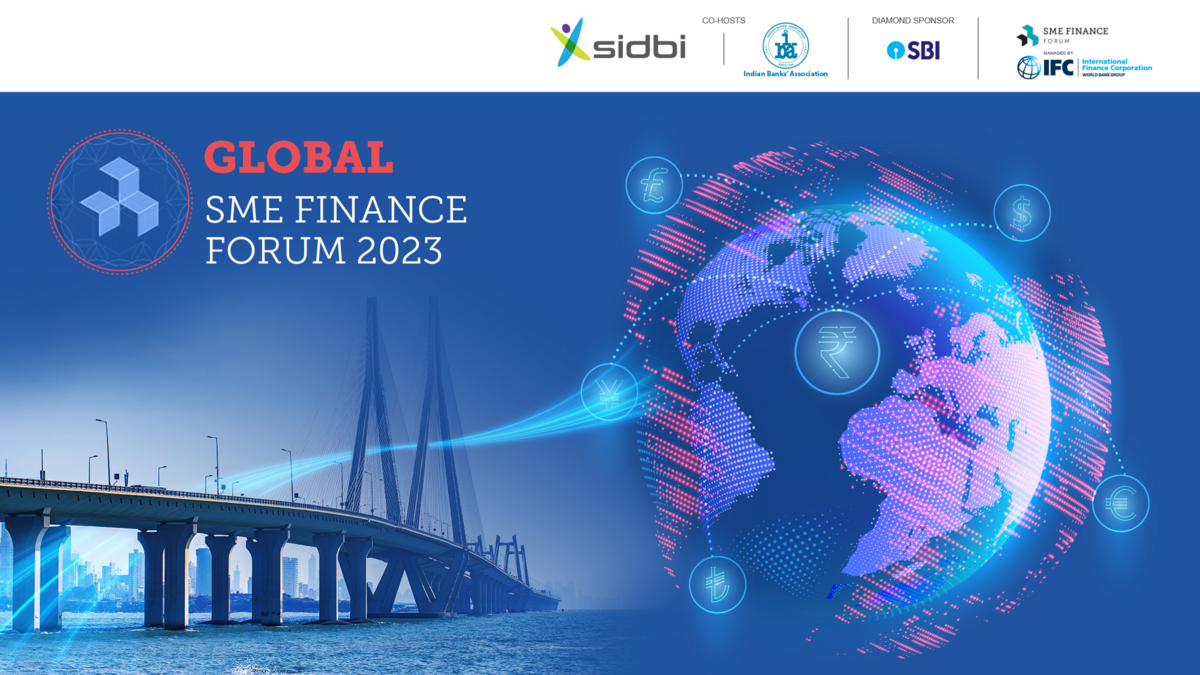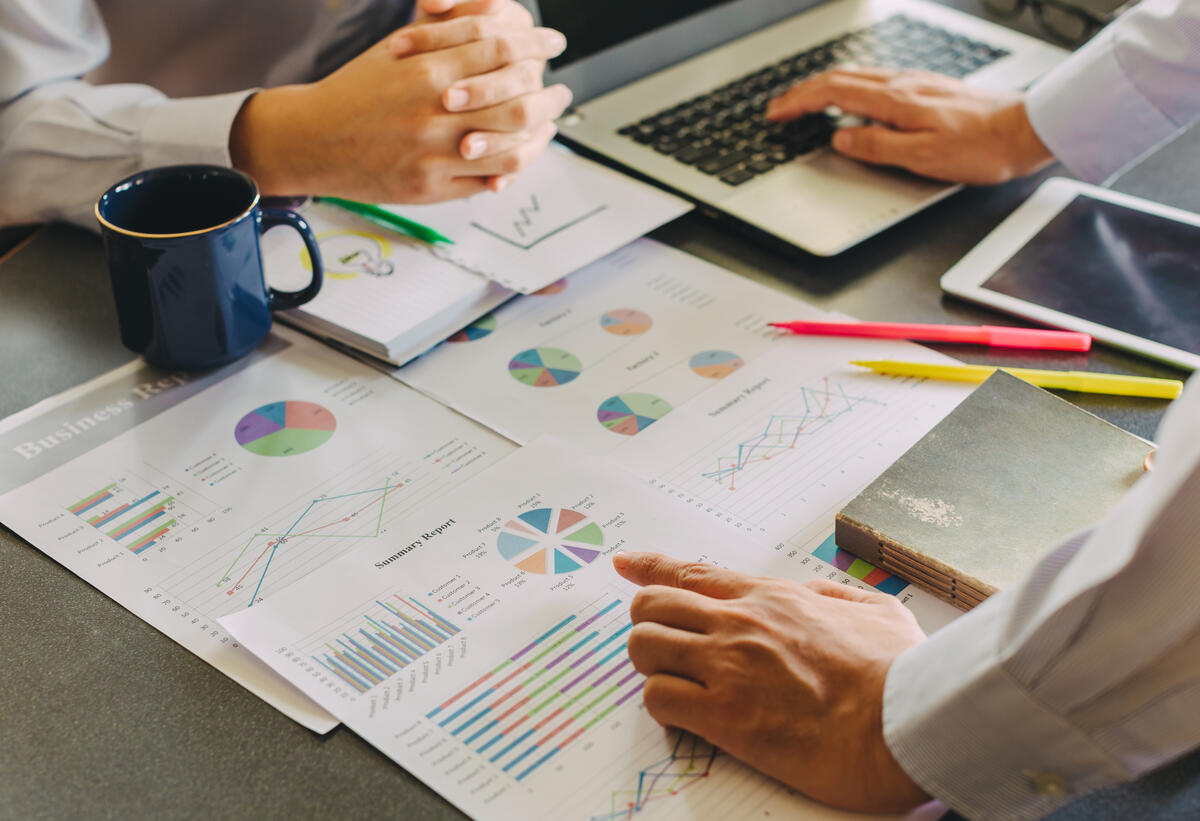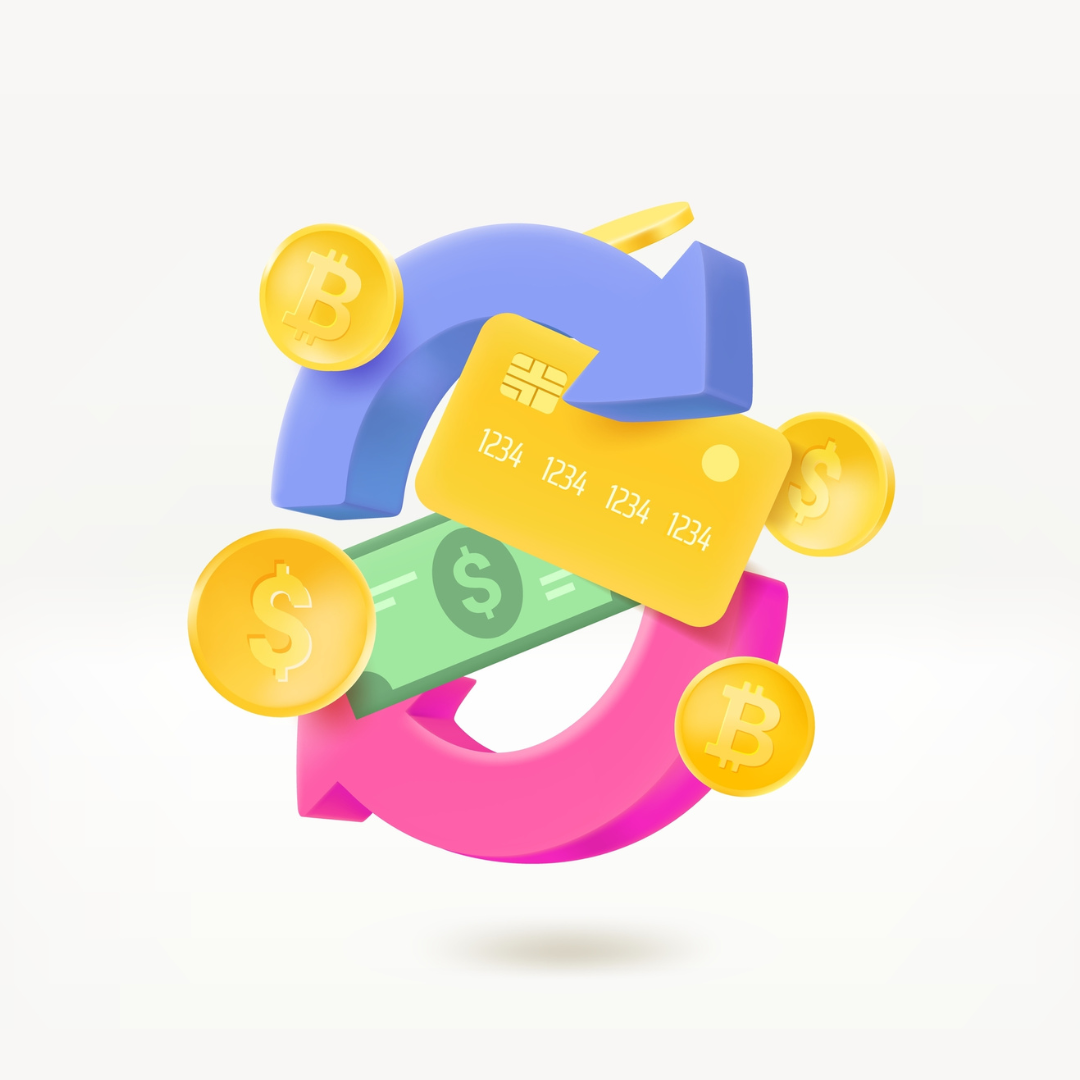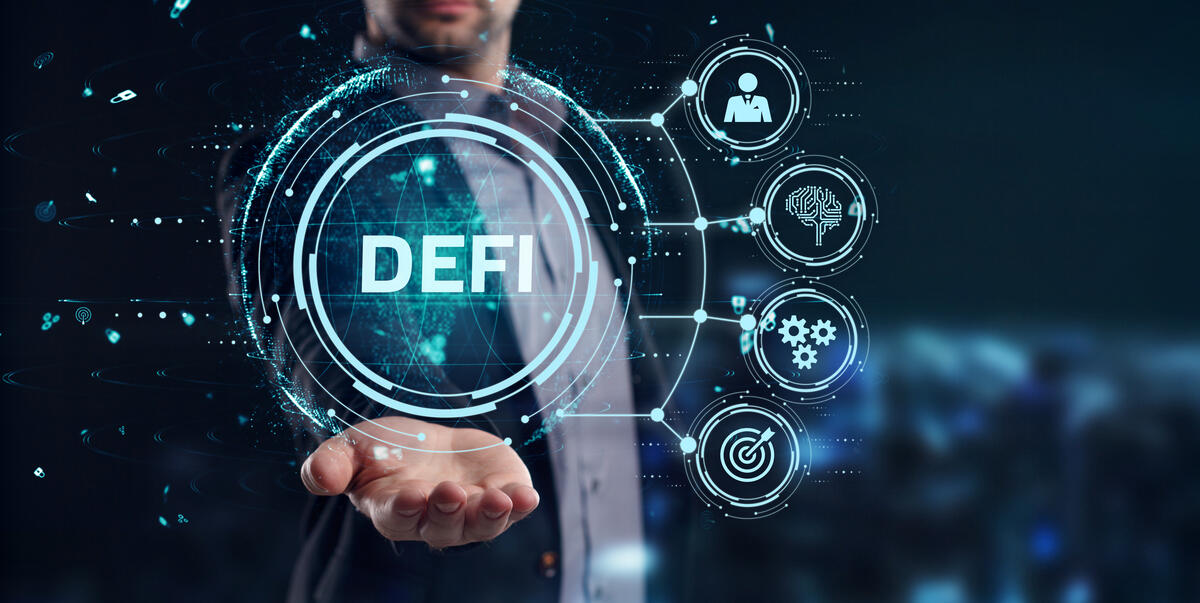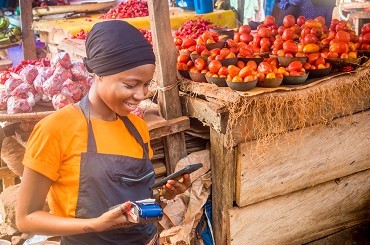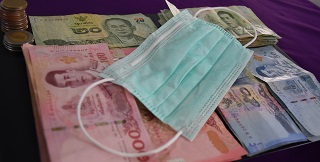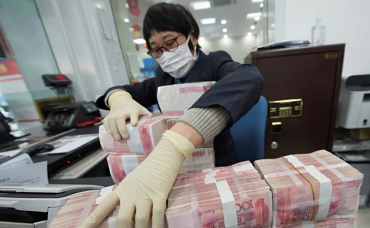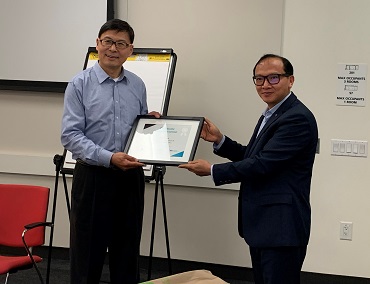Blog
How fintech innovations are changing the world

Summary of the SME Finance Virtual Marketplace - August Live Session
The SME Finance Forum since its inception in 2015 has been featuring innovative fintech, helping connect members to different technologies and partnership opportunities. Through our virtual SME marketplace, we offer, in particular, a monthly pitch session. The SME virtual marketplace is a unique online match-making platform promoting partnership and collaboration among financial institutions, fintech companies, and DFI.
On August 3rd, the SME Finance Forum Marketplace session gathered three fintechs and a European association offering services ranging from loan guarantees, economic growth, external data and technological innovation. Read below a summary of their presentations:
The Power of Loan Guarantees: How They Can Fuel Your SME Growth
AECM, represented by Katrin Sturm, is situated in Brussels and specializes on guarantee instruments. With only ten members when it was founded in 1992, AECM is an association. There were around 312 billion euros in outstanding guarantees at the end of 2021, and AECM currently has 46 members from 30 different European nations. It covers 6 million SMEs, which is about 25% of all SMEs in Europe. Not only do the 46 members of the AECM previously mentioned provide coverage for the organization in Europe, but the AECM is also very proud to have three partners that are professional organizations, namely the SME Finance Forum, REGAR, and Euro Mediterranean Guarantee Network. Additionally, AECM is a founding member of the Global Network of Guarantee Institutions. In principle, AECM holds that the guarantee is always required in order to overcome the acknowledged market failure that SMEs have with regard to accessing financing. Yet, the guarantee is also a crisis instrument as shown during the period of the 2008–2009 financial and economic crisis, when AECM saw an increase in the outstanding guarantee volume of about 27%. Even during COVID's busiest periods from the end of 2019 to the end of 2020, when it had an impact on every industry, AECM's volumes tripled, rising by about 200%. How is the AECM guarantee implemented? For instance, if someone wishes to launch a business, the next step would be to approach a commercial bank and request a loan. But if someone does so, there is risk involved, and collateral would be required for it. If the entrepreneur is unable to give that, the bank plays a very important role since it is then up to the bank to refer to one of AECM's members and ask if they can provide a guarantee.
The Guarantee Institution then reviews the file and determines that it is a valuable project and offers a guarantee. The suggestion for the Guarantee Institution to obtain the guarantee on its own is known as a counter guarantee, and sometimes there is another counter guarantee, indicating that the more parties involved, the more risk is shared and the greater the leverage. The guarantee is granted on average at around 70%, leaving 30% on the commercial bank. The more partners participate, the better it becomes for the guarantees, which are completely different from the grants. If the European Investment Fund (EIF), a longstanding partner of AECM’s members since 1998, determines that it is willing to lose for instance 1,000 euros, and sets a cap rate of 12.5%, which implies that if a customer provides guarantees, the 1,000 euros will become 8000 EIF guarantees. Fortunately, EIF only offers 50% guarantees, not 100% which increases the leverage further The AECM members are quite heterogeneous according to their ownership's size, their coverage area, and their age. But what kind of guarantee they offer and for what items is also important, especially in light of the pandemic. It turns out that guarantees are now required for quasi-equity, leasing and factoring as well as sustainability-specific green guarantees. Guarantees can be helpful whenever banks feel that the risk is too high.
Intelligent Business Solutions For Strengthening Economic Growth
Creditinfo represented by Burak Kilicoglu was founded in 1997 and it has operations and presence in more than 50 countries. A credit bureau is present in more than 30 countries. Creditinfo has been among the organizations with the quickest growth in credit risk management. CreditInfo has more than 10,000 clients, and for them, the company's 400+ knowledgeable employees worldwide, as well as its presence in 19 African nations, every day make about 1 million informed decisions. And one of the primary geographical areas for CreditInfo operations is Africa. The data challenge, which limits trade, is the main issue facing the African area. After interacting with clients like central banks and other organizations, it has been discovered that there are frequently problems with the business registry that is offered in Africa, either because it is severely constrained or because it is completely absent. And in particular, that applies to independent recordkeeping, annual financial reports, and audited financial statements. Because independence is so crucial, it affects both the ability and willingness of global corporations to engage in trade with sub-Saharan businesses. Possessing autonomous knowledge and the autonomy to make an independent judgment. Credit risk assessment is the process by which creditors evaluate three essential concepts: ability, stability and willingness to pay. The lack of specific information that is independent information that is detailed firm records from an audit viewpoint, from the standpoint of European and US markets, is a disincentive; it is a deterrent to seeking or engaging with African trading partners. As a result, companies have fewer possibilities for trade partners. They then engage intermediaries, who add to the expense. As a result, the process is slow and it is expensive to find new trading partners.
The goal of CreditInfo's solution is to quickly and securely provide impartial information about the business, SMEs, micro-SMEs, and the bank and credit connection. By connecting the dots between the information that is already known about them and their specific trading partner, the organization's information essentially serves this purpose. The credit bureau data is where the collateral information is found. Therefore, CreditInfo believes that their proposition is quicker from a timing perspective and more marketable from a data content perspective. It is richer and provides more information to come to an objective conclusion on the risk assessment. This is if the International provider or credit risk rep report compares against the specific solution that they're building. CreditInfo has operations in 19 different African nations. CreditInfo is there to provide alternative data when traditional sources are unavailable which is exactly what CreditInfo is attempting to do by providing unique, independent, and safe information available to ensure that there is progress on the worldwide commerce.
The Power of External Data: How businesses can use it to gain a competitive edge
Demyst represented by Prashant P. Reddy serves as the main entry point for outside data. And all forms of outside data are included in it. Demyst, a company that specializes in property data, deals with consumer and digital sentiment data. Demyst actively seeks to onboard any form of data that a company might utilize for risk decisioning, making it available to businesses and fintech for risk decisioning. Demyst offers more than 800 different data products, including those from well-known companies like Experian, Equifax, and TransUnion as well as hundreds more from independent data suppliers. It has been quite helpful for many businesses that are truly struggling to comprehend what data is out there that can help them solve a problem because it solves the data discovery problem. One can click on a provider and learn more about what they offer. With the use of the Dymst API, one can access any kind of data that is made available on the platform, including entire files if that is the preferred mode of data consumption rather than just real-time data. This platform, which is like Netflix for data, allows users to purchase specific data products once they have made their choice.
The primary issue that Dymst is addressing is the enterprise's desire to access external data. In today's environment, businesses are attempting to obtain as much external data as they can to support a variety of use cases. Going to external data sources is essential if the onboarding of a firm, individual, or other entity is being done and a complete image of that person or entity is needed in order to increase their access to credit or discover that they may be searching for new forms of financing. Because of mobile phones and everything else that moves external data, there are so many separate ecosystems. Businesses must contend with a fragmented data market. Demyst thereby consolidates the entire data market into a recognized data ecosystem and makes it accessible to businesses, enabling them to access all of the data at once on a single platform under a single contract.
Build core competencies through innovation, technology and skilled employees.
China's first digital bank, WeBank, debuted in 2014 represented by Gaurav Chaudhari. Its goal has been to create financial inclusion to address the needs of China's underbanked sector. With almost 340 million individual consumers and nearly 2.8 million MSMEs, it has been the main emphasis of digital banking. At the moment, the main focus is on serving the long-tail market with innovative financial products and services, therefore, in order to actually compete in this type of segment, WeBank heavily relies on leading-edge technologies, which is why technology is the foundation of its success. From a technological standpoint, the strategy centers on four technologies: AI, blockchain, cloud, and big data. Additionally, there are other applications that are actively being developed for both internal and public use. All throughout, it has made use of open-source technologies and actively contributed to the open-source ecosystem.
As a result, WeBank has reduced costs overall, with blockchain technology playing a part. They have currently been able to minimize the annual IT operation cost per account to around 40 cents, which is far less than any other big banks through the innovative use of leading technologies. Blockchain known as the "trust machine," is a good fit for building collaborations. The necessary data for collaboration, is typically dispersed over numerous participating entities and needs to be linked together so that the user may gain value from it, enabling the user to share the data without compromising any privacy, blockchain is utilized to enable this process to function across various parties. Speaking about WeBank's partners and their use of these technologies, it has been noted that there has been a greater overall impact on both financial sustainability and sustainability-related habits.
About the presenters:
Creditinfo
Where Traditional Sources not Available, Alternative Data will Provide Insights,
Creditinfo working to make Unique, Independent and Secure Information Available to Improve Global Trade.
AECM
European Association of Guarantee Institutions, abbreviation derives from the French name Association Européenne de CautionneMent. Mission: Political representation, Organization of the exchange of good practices and Promotion of the guarantee instrument.
Demyst
Demyst provides a user friendly platform that helps clients discover and deploy curated external data.
WeBank
WeBank became China's first digital bank in December 2014 upon receiving its banking license. It offers underbanked individuals and SMEs a variety of convenient and high-quality financial services.
______________________________________________________________________________________________________________________________________________________
If you want to learn more about those organizations, listen to the recording of the marketplace session HERE
Speakers’ presentations are also available HERE
We also encourage you to get in touch with them to make inquiries and explore partnership opportunities on our Virtual Marketplace which is open 24/7.
If you missed previous marketplace sessions, visit this link> to listen to the recordings and read the write-ups of all our live sessions since April 2021.




